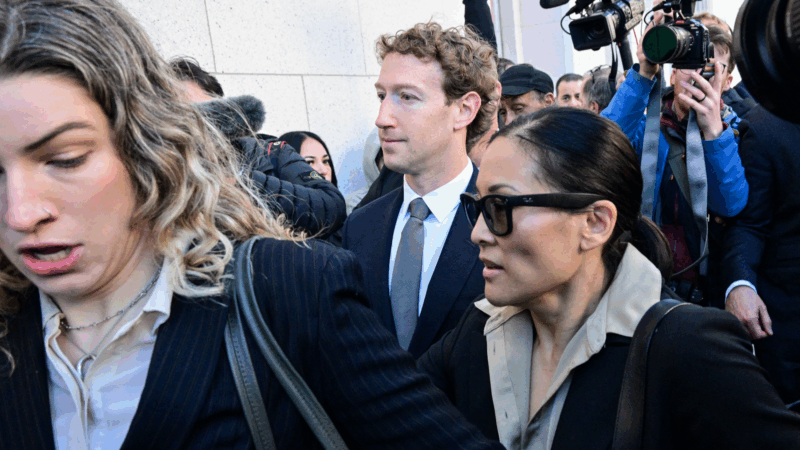Higher ed war heats up as Trump threatens Harvard’s tax-exempt status
President Trump today threatened on social media to revoke the tax-exempt status of Harvard University.
“Perhaps Harvard should lose its Tax Exempt Status and be Taxed as a Political Entity if it keeps pushing political, ideological, and terrorist inspired/supporting ‘Sickness?'” Trump said in a Truth Social post.
His comments marked the latest volley in a battle between the Trump administration and the wealthiest college in the world, a battle that heated up last Friday when the administration sent Harvard a list of demands it said must be met, or risk losing some $9 billion in federal funding.
Harvard’s president yesterday rejected the administration’s demands, saying they were illegal and an intolerable attempt to dictate “what private universities can teach, whom they can admit and hire, and which areas of study and inquiry they can pursue.”
The administration responded within hours, freezing more than $2.2 billion in grants and multi-year contracts to Harvard, much of it intended for research on a wide range of subjects.
Many higher education leaders welcomed Harvard’s stance, saying the school was uniquely positioned to take the lead.
“Harvard really had no choice given the extent of the demands the Trump administration had made upon it,” said Michael Dorf – a law professor at Cornell University.
Ted Mitchell, the president of the American Council on Education, an organization that represents more than 1,600 colleges and universities, said that by taking the lead, Harvard paved the way for other institutions to oppose the administration’s demands.
“If Harvard hadn’t stood up,” Mitchell said, “it would have sent a chill across higher education that would have really hampered the ability of other institutions to define for themselves where that red line is.”
A battle rooted in ideology
The administration maintains that its attacks on Harvard and dozens of other universities are an attempt to root out antisemitism on campus.
In March, the government announced that 60 universities were under investigation by the U.S. Education Department for allegedly failing to protect Jewish students.
“The disruption of learning that has plagued campuses in recent years is unacceptable,” the administration’s Joint Task Force to Combat Anti-Semitism said in a statement yesterday. “It is time for elite universities to take the problem seriously and commit to meaningful change if they wish to continue receiving taxpayer support.”
But President Trump has also repeatedly said that he wants to curb what he views as a far-left bias in academia.
“We are going to choke off the money to schools that aid the Marxist assault on our American heritage and on Western civilization itself,” Trump said in a speech in Florida in 2023. “The days of subsidizing communist indoctrination in our colleges will soon be over.”
And in the last month, the administration has cancelled or frozen about $11 billion at a handful of institutions.
Former President Barack Obama, in a statement today, praised Harvard’s response and called the administration’s moves an “unlawful and ham-handed attempt to stifle academic freedom.”
The threat of removing tax exemption
While the loss of grants and contracts for research in a wide range of fields is alarming, many college leaders have said they were deeply worried that the administration might move beyond that, notably by threatening their tax-exempt status. Trump’s comments today confirmed those fears.
“The catalog of horrors is a thick one,” Mitchell said. “There are plenty of things that the administration can seek to do that would throw institutions off kilter. And tax-exempt status is certainly one of them.”
Nearly all colleges and universities are tax-exempt organizations. They are given nonprofit status along with charities, religious institutions and some political organizations.
Some elite institutions have amassed huge endowments – Harvard’s is the largest, at about $50 billion.
Republicans have long sought to curb the tax exemptions in higher education. In 2017, Congress passed a 1.4 percent tax on university endowments, which affected many of the nation’s elite institutions.
Mitchell and other experts said they believe some of the administration’s demands, and its threats to pull funding, are unlawful.
Already, legal challenges have begun, including a lawsuit filed late last week by Harvard faculty – along with the American Association of University Professors – challenging the administration’s demands for changes in order to maintain funding levels. Among those demands are that Harvard eliminate DEI programs, screen international students who are “supportive of terrorism or anti-Semitism” and ensure “viewpoint diversity” in its hiring.
With a win over Sweden, the U.S. men’s hockey team will play for an Olympic medal
A thrilling overtime goal by defenseman Quinn Hughes puts Team USA through to a semifinal game against Slovakia. On the other side of the bracket, Canada had its own close call, but moves on to face Finland.
Zuckerberg grilled about Meta’s strategy to target ‘teens’ and ‘tweens’
The billionaire tech mogul's testimony was part of a landmark social media addiction trial in Los Angeles. The jury's verdict in the case could shape how some 1,600 other pending cases from families and school districts are resolved.
The Trump administration is increasingly trying to criminalize observing ICE
ICE officers often tell people tracking and watching them that they are breaking federal law in doing so, but legal experts say the vast majority of observers are exercising their constitutional rights.
8 backcountry skiers found dead and 1 still missing after California avalanche
Authorities say the bodies of eight backcountry skiers have been found and one remains missing after an avalanche near Lake Tahoe in California. Six others were found alive.
FDA reverses course on Moderna flu shot
The Food and Drug Administration's about-face comes a little more than a week after the agency refused to consider the company's application to market the new kind of influenza vaccine.
Following Trump’s lead, Alabama seeks to limit environmental regulations
The Alabama Legislature on Tuesday approved legislation backed by business groups that would prevent state agencies from setting restrictions on pollutants and hazardous substances exceeding those set by the federal government. In areas where no federal standard exists, the state could adopt new rules only if there is a “direct causal link” between exposure to harmful emissions and “manifest bodily harm” to humans.






